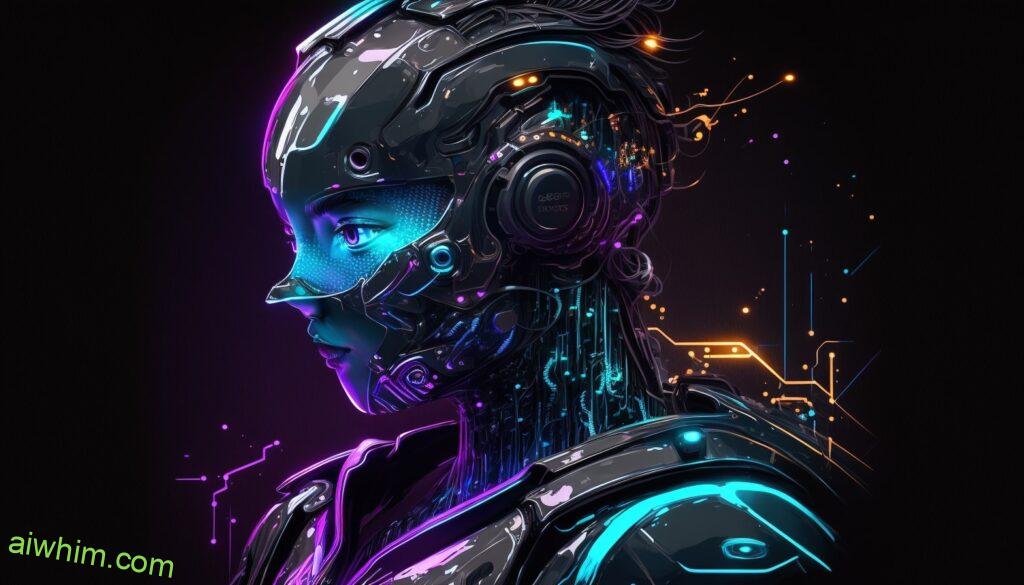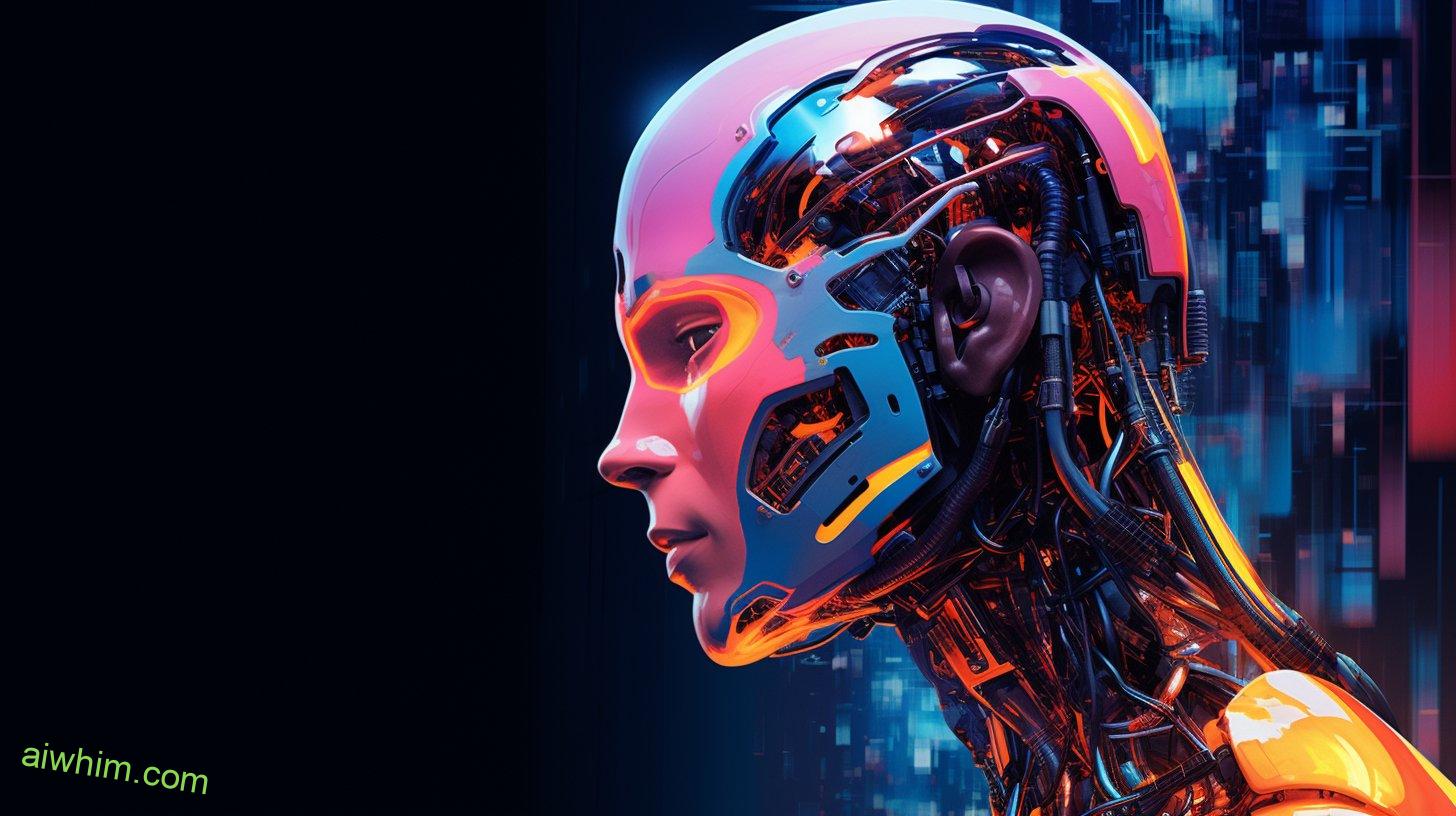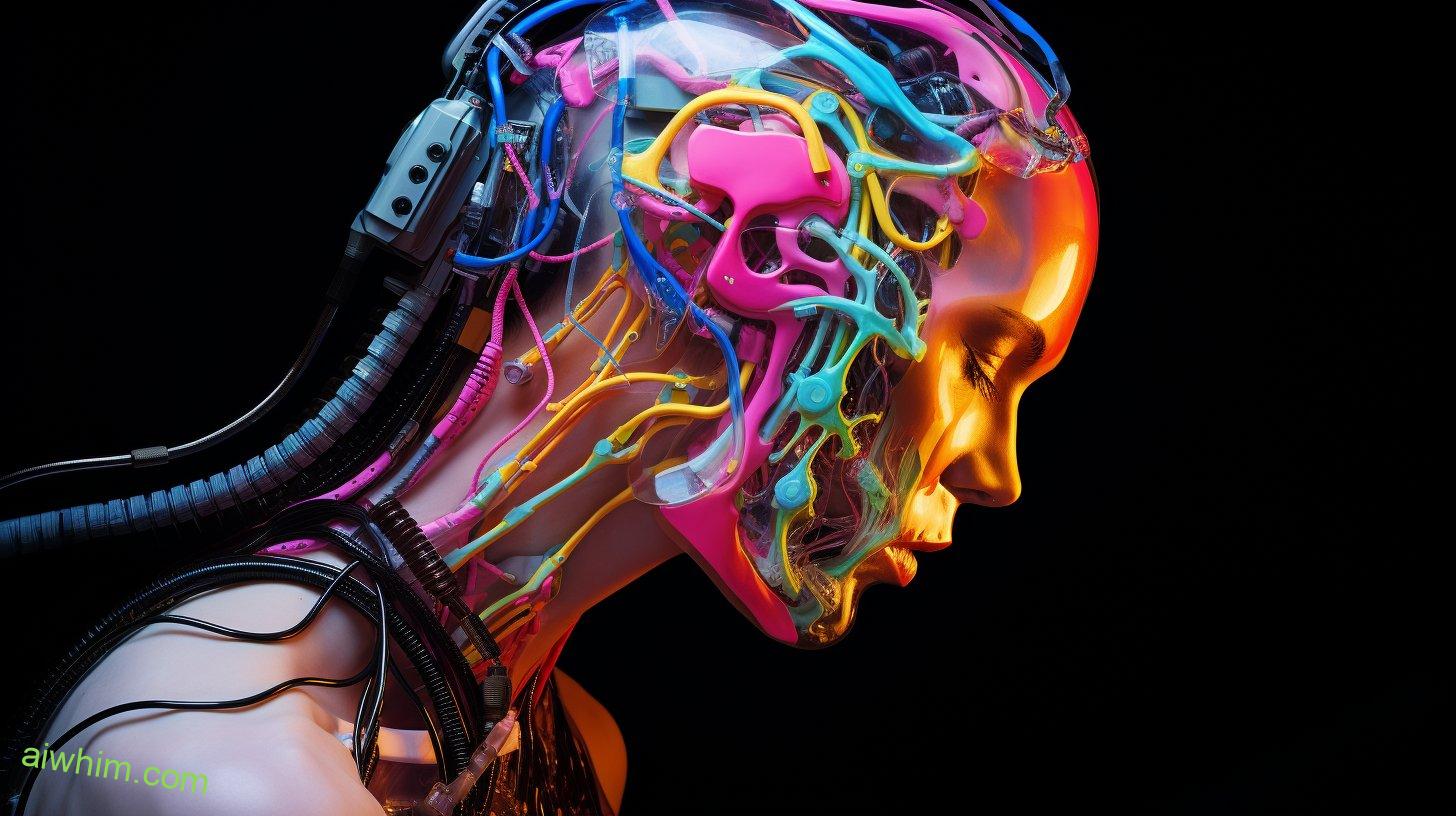As technology and AI progress, it is natural to ask the question: will nurses be replaced by machines in the future? This is a complex and nuanced issue that requires more than a simple yes or no answer. In this article, we’ll explore what changes could occur as healthcare advances towards an AI-driven system and how these developments might affect current nursing practice.
In recent years there has been increasing speculation about the potential impact of artificial intelligence (AI) on medical care. As robots become increasingly sophisticated, they are able to mimic human behaviour with greater accuracy, leading many people to wonder if AI can replace traditional health professionals such as nurses. However, while some aspects of nursing may eventually be taken over by computers and machines, it’s important to remember that nurses still provide invaluable emotional support for patients which cannot simply be replicated by technology.
From providing comfort during difficult times to helping individuals navigate complex healthcare systems, nurses play an integral role in patient care. Let’s take a closer look at how AI could shape the occupational future of nursing and discuss whether robots really are capable of replacing humans when it comes to delivering quality care.
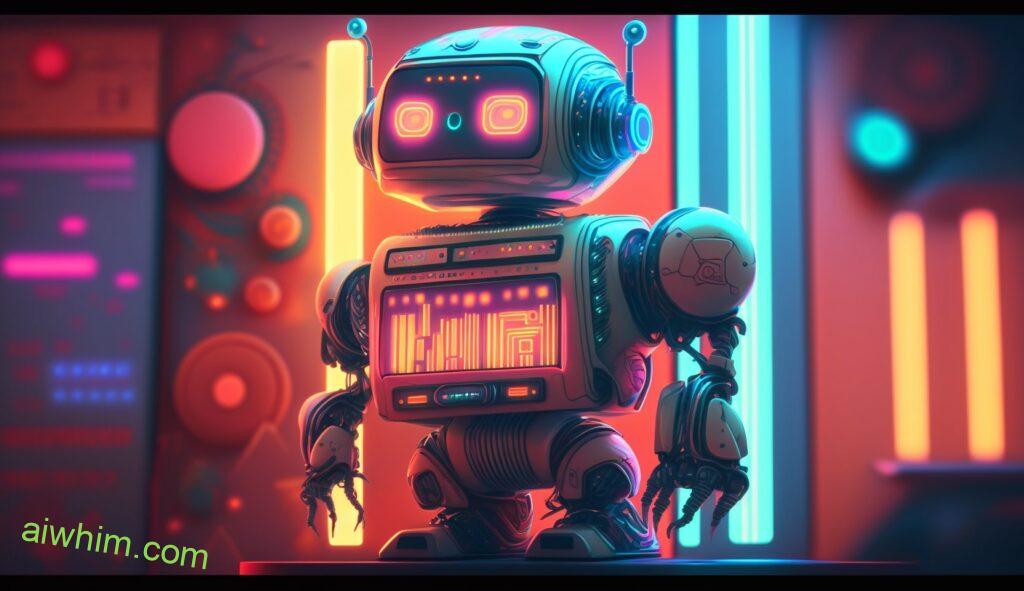
Here are the points we will go over in this post:
Definition Of Artificial Intelligence
Artificial intelligence (AI) is a rapidly developing field of technology that enables machines to think, learn and act like humans. AI is made up of various elements such as machine learning, deep learning, natural language processing and computer vision. Machine learning algorithms help machines make accurate predictions by analyzing large volumes of data. Deep learning involves the use of neural networks to recognize patterns in complex datasets. Natural language processing helps computers understand human language and respond accordingly. Finally, computer vision helps machines identify objects and interpret their environment based on visual cues.
The possibilities for AI are seemingly endless; it can be used to automate mundane tasks or even predict future events with remarkable accuracy. This has led some experts to suggest that AI could eventually replace humans in certain roles, particularly those that require a high level of precision or speed. The prospect of automation is exciting yet controversial – while offering many advantages, it also raises questions about its potential impact on jobs and society at large.
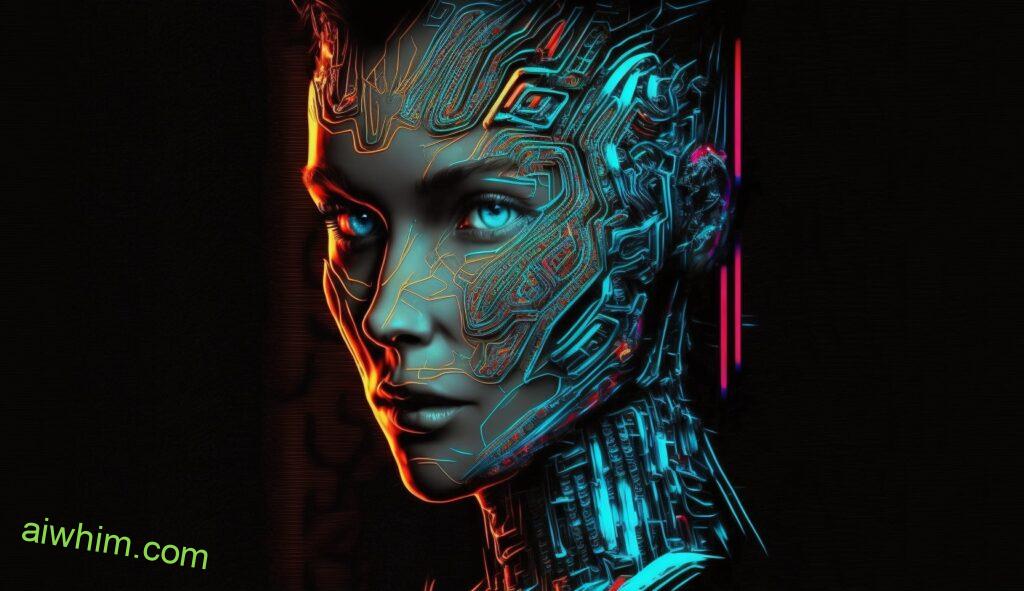
Moreover, this article provides insights into how AI is influencing Radiologic Technologist jobs. (Click to read.)
Overview Of Nursing Profession
The nursing profession is a unique and essential component of healthcare. It provides numerous career opportunities for individuals who seek to make an impact in the lives of others. Let’s take a look at some of the types of nurses, as well as the roles they play in providing quality care:
- Types of Nurses:
- Registered Nurses (RNs)
- Provide direct patient care
- Create individualized treatment plans
- Licensed Practical/Vocational Nurse (LPN/LVN)
- Administer medications and treatments
- Monitor patient vital signs
- Nursing Roles:
- Clinical nurse specialist (CNS): Diagnose medical conditions and provide specialty consultation services
- Certified nurse midwife (CNM): Assist with prenatal care, labor and delivery, postpartum care, family planning services, and newborn care
- Certified registered nurse anesthetist (CRNA): Administer anesthesia during surgical procedures and monitor patients’ responses before, during, and after surgery
Additionally, nurses work within many different settings including hospital wards, physician offices, long-term or hospice facilities, schools, research laboratories, community health centers and more. The workplace environment varies greatly depending on where one chooses to practice; however all these environments share one common goal—to improve public health through compassionate patient care. Regardless of where they are employed or what their job entails it is clear that nurses have invaluable skills which serve society in immeasurable ways.

In addition, we have an article dedicated to exploring the effects of AI on dentist jobs. (Click to read.)
Advantages Of AI In Healthcare
AI in healthcare promises to revolutionize the industry and bring numerous advantages. Automation in this work sector can reduce human errors, which lead to improved patient care quality. AI technology has already been proven to increase accuracy when it comes to diagnosing diseases such as cancer. AI also enables greater cost savings by automating time-consuming administrative tasks like paperwork filing, freeing up medical professionals’ time for more important duties.
Another significant advantage of AI is its ability to provide personalized care tailored to each individual’s needs. This could be especially beneficial for elderly patients or those with chronic conditions who require frequent monitoring and treatments. With AI, physicians are able to rapidly analyze a patient’s data and make decisions about the best course of action much faster than ever before. Additionally, AI allows healthcare providers to easily access historical trends and patterns from a variety of sources – including health records, insurance claims and other data points – giving them an edge that helps improve patient outcomes even further.
In short, incorporating artificial intelligence into healthcare offers clear benefits both for clinicians and their patients alike: better accuracy in diagnosis; increased efficiency through automation; enhanced personalization of care; and improved decision-making based on big data analytics. All this combined should translate into higher quality treatment at lower costs in the long run – a win-win situation for everyone involved!
Also, don’t miss this article that sheds light on how AI is impacting Veterinarian jobs. (Click to read.)
Challenges Posed By AI
As AI technology continues to rapidly evolve, it raises questions about the potential challenges that arise with its implementation in healthcare. These challenges are like a multi-headed hydra – for every head chopped off, two more appear. From machine learning capabilities to data security and privacy implications, there is much to consider when discussing how AI can be used safely and responsibly in healthcare.
Below we look at three of these challenges:
- Machine Learning – Machine learning has enabled AI systems to become smarter over time by feeding them large volumes of data. However, this also poses risks such as unintended bias or errors due to incorrect assumptions based on incomplete datasets. It is essential that healthcare providers have reliable quality assurance processes in place before deploying any AI solutions.
- AI Reliability – Many types of AI applications require immense amounts of computing power and accuracy which may lead to issues such as software instability or system crashes. Additionally, since many medical decisions rely on complex patient conditions involving multiple variables, ensuring accurate decision making from an AI system requires extensive testing and validation prior to deployment.
- Data Security & Privacy Implications – As new forms of healthcare technology begin collecting personal health information (PHI), organizations must ensure proper procedures are in place for safeguarding against unauthorized access or misuse of PHI stored within their systems. In addition, if users decide they no longer wish for their data to be stored, companies should have clear policies outlining user rights so they know what steps need to be taken should they want their data deleted.
The advancement of artificial intelligence into healthcare brings both opportunities and challenges—it’s up to individuals and organizations alike to work together towards responsible use of this powerful technology while protecting the right to privacy and safety.
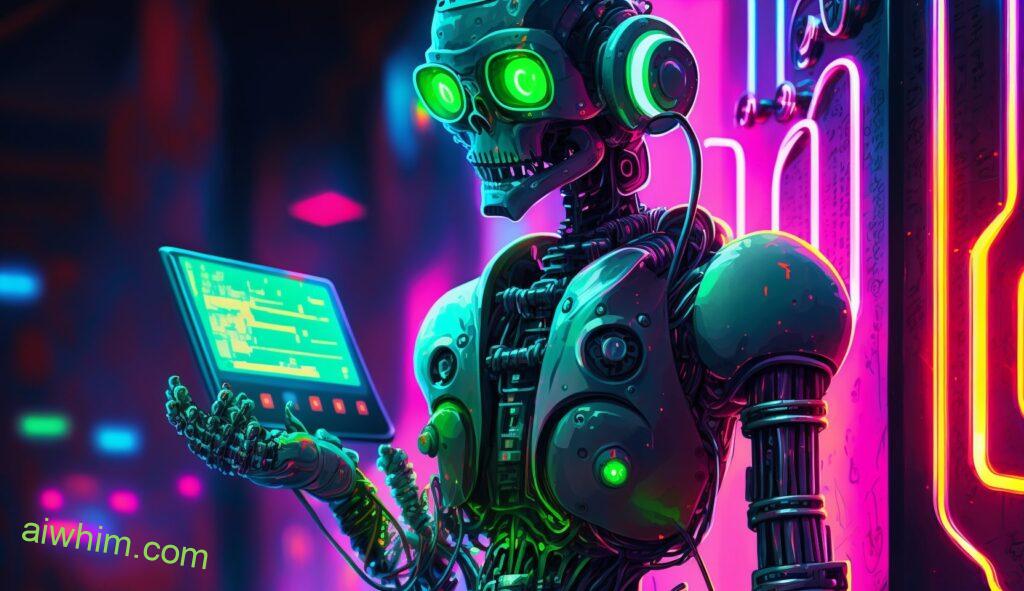
Impact On Patient Care Quality
The use of AI in healthcare has the potential to improve patient care quality, as well as reduce costs. AI could automate certain tasks that are currently done manually and allow nurses to focus more on providing direct patient care. It is anticipated that AI technology will be able to analyze individual cases quickly, identify patterns, and provide recommendations for improved care outcomes. This would likely lead to increased efficiency and cost-effectiveness in health delivery systems, ultimately resulting in better healthcare outcomes for patients.
AI can also help with identifying issues related to patient safety and medical errors while improving clinical efficacy through data analytics, predictive modeling, and machine learning capabilities. Through these processes, AI technologies can enable healthcare organizations to identify areas where improvements need to be made in order to optimize care quality improvement initiatives. As a result, hospitals may experience fewer preventable adverse events or medication errors due to enhanced monitoring provided by AI applications.
By leveraging the power of Artificial Intelligence within their workflows, nurses can gain additional support from computers in terms of diagnosis accuracy and decision making speed allowing them to dedicate their time towards activities that require their expertise such as emotional support and communication skills when interacting with patients. In addition, AI helps increase the availability of data which enables nurses make evidence-based decisions faster thus leading to quicker implementation of interventions necessary for optimal patient outcomes. All of this points towards an exciting future wherein nurse’s roles evolve into something much greater than they are today – one where they become active participants in driving innovation rather than passive recipients of it.

Ethical Considerations
The ethical implications of replacing nurses with AI technology are complex and far-reaching, raising a number of moral obligations to consider. Some key points include:
- Data privacy: As the use of AI in healthcare increases, so does the need for secure data storage systems that can protect patient information from potential breaches or misuse.
- AI ethics: In order for AI technologies to work properly, they must be programmed with certain ethical values and principles such as “do no harm” and respect for autonomy and dignity.
- Legal considerations: Nurses must remain compliant with applicable laws regarding their practice which could potentially be impacted by using AI in health care settings.
- Professional codes of conduct: Professional nursing organizations have guidelines on how nurses should interact with patients, which might need to be updated if AI is implemented in health care settings instead of traditional nurses.
Overall, there is a great deal to consider when it comes to introducing AI into healthcare delivery–from data privacy issues to legal considerations and professional codes of conduct. Ultimately, any decisions made will have significant impacts on the future of healthcare, and those involved should ensure they make well-informed choices based on research and evidence rather than simply following trends blindly.

Financial Implications
The future of nursing is a hotly debated topic, one that has been under the microscope for decades. While some fear Artificial Intelligence (AI) will replace nurses in the coming years, others believe this technology can only enhance existing healthcare systems. The financial implications are complex and far-reaching; understanding these implications could help shape the way we view AI’s role in healthcare today.
When it comes to cost efficiency, AI offers numerous advantages over traditional nurse care models. Healthcare costs have skyrocketed in recent years, making it difficult to provide quality care while maintaining affordable prices. With automated systems managing large amounts of data and providing real-time analytics, AI can lower costs significantly by eliminating redundant processes and streamlining workflow. Additionally, artificial intelligence eliminates human error so doctors and nurses can focus on more time consuming tasks such as diagnosing patients or creating individualized treatment plans.
Financial risks must be taken into consideration when implementing any new technology—especially one that relies heavily on investment upfront but yields long term savings. However, with careful planning and proper management of resources, these risks can be minimized while gaining considerable cost savings from using AI technologies within hospitals or other medical settings. Furthermore, allowing nurses to take on higher value roles would no doubt increase their job satisfaction as well as patient satisfaction rates. As more organizations across industries embrace automation solutions for better performance outcomes without sacrificing safety or security standards, it’s clear that there’s much potential for AI to make an impactful difference in our healthcare system today – both financially and non-financially speaking.
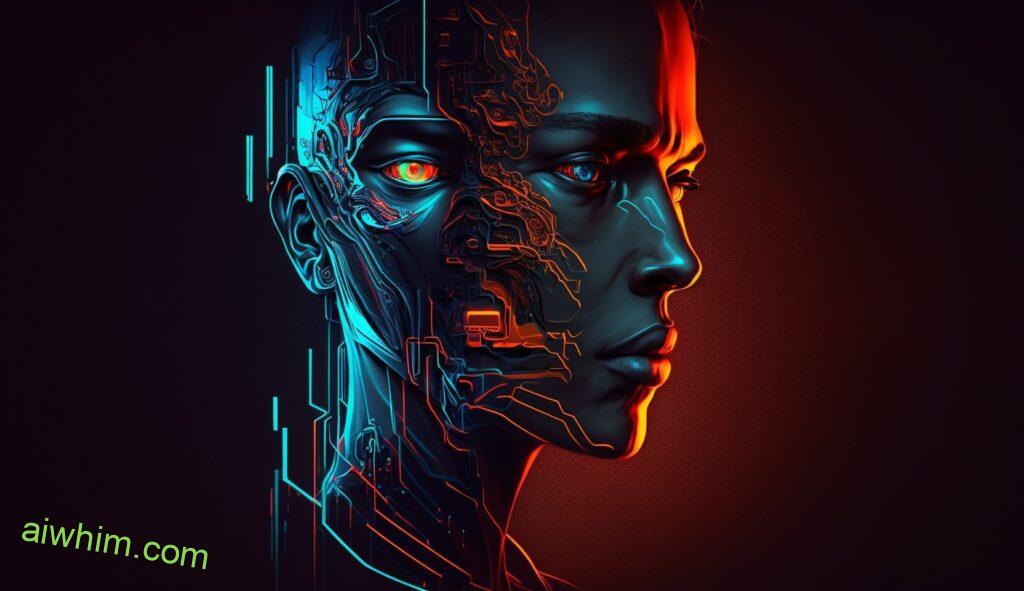
Impact On Job Satisfaction
The impact of AI technology on the nursing profession could have far-reaching implications for job satisfaction. Nurses often cite a sense of fulfilment as one of their primary motivations for working in the field, and this may be diminished if AI replaces them entirely. The ethical implications of using AI to replace human caregivers must also be considered, as there are certain aspects of patient care that require more than just technical skills and knowledge – it requires empathy and understanding too.
Adopting AI technology into healthcare has the potential to revolutionize how nurses work but it is important to consider the following points:
- What are the long-term implications for job satisfaction?
- How will patients’ needs differ when cared for by an AI?
- Are there any ethical considerations that should be taken into account before implementing such a change?
Given these questions, further research is needed to determine how introducing AI into healthcare might affect job satisfaction among nurses. There’s no doubt that adopting cutting edge technologies can bring great benefits, but ensuring those advancements don’t come at the expense of either patient or nurse welfare should always remain top priority.
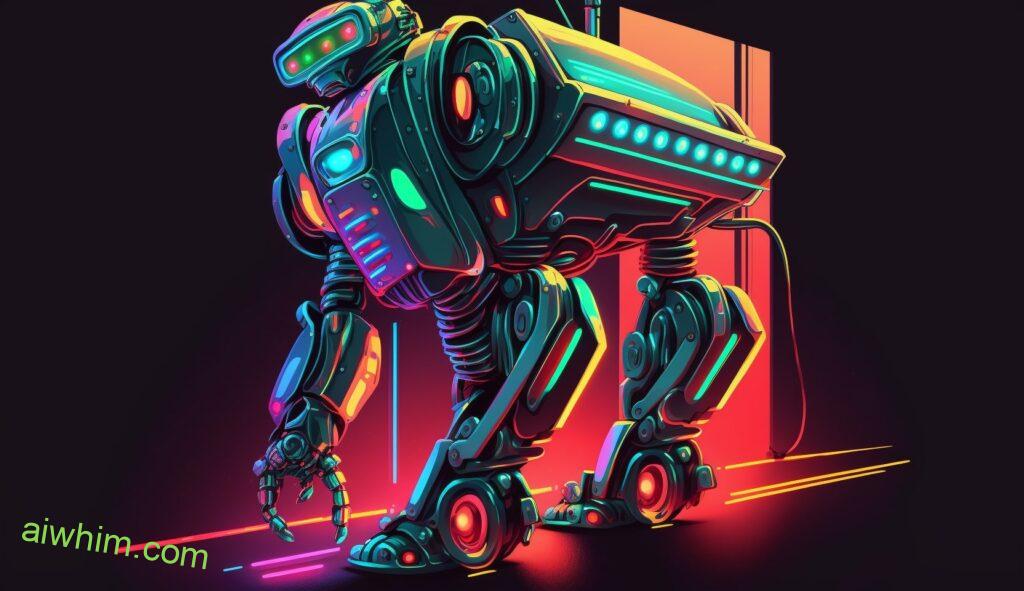
Potential For Automation
The potential for automation in the healthcare field is an intriguing concept. It has the power to revolutionize patient care, while also allowing nurses and other professionals more freedom and time to focus on meaningful tasks. The possibility of advanced artificial intelligence (AI) technologies replacing nurses raises some questions about what this could mean for the future of healthcare.
If AI was able to take over certain roles that nurses currently provide, then it would free up valuable resources within hospitals and clinics, including both personnel and financial savings. Automation could allow doctors to spend more quality time with their patients by taking on mundane administrative duties or performing tedious labor-intensive procedures without human involvement. This type of increased efficiency could also lead to improved patient outcomes as a result of reducing medical errors due to fatigue or distraction from repetitive tasks.
At present, there appears to be no imminent threat posed by automation when it comes to healthcare workers being replaced by machines; however, the potential for such a situation exists given rapid advances in technology. As AI continues its development, we must ensure that ethical considerations are taken into account before introducing any automated system into clinical settings, ensuring that our healthcare remains safe and effective for all those involved.
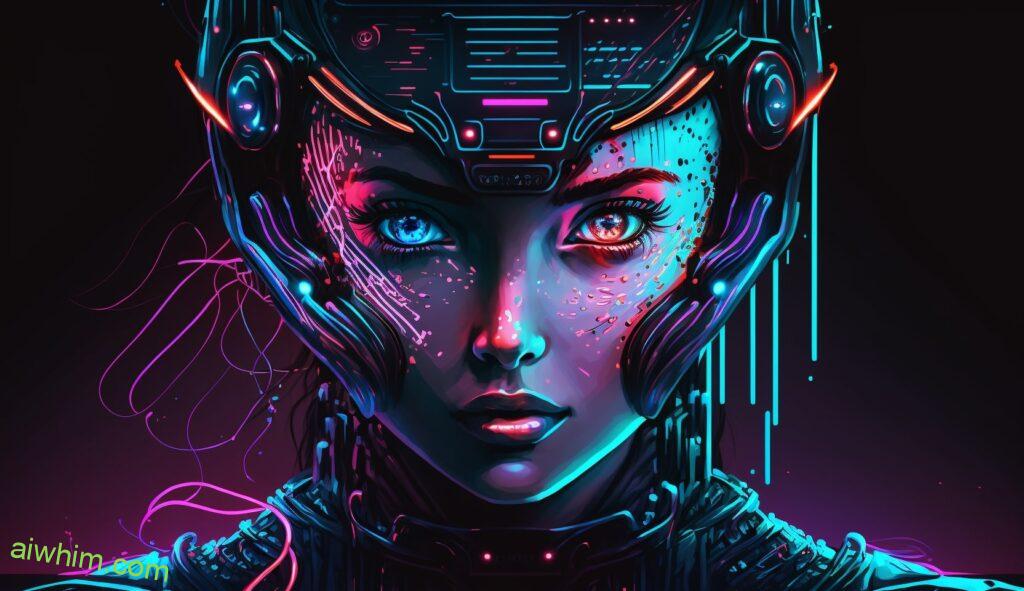
Availability Of Data
Now that we have explored the potential for automation to replace nurses in the future, let’s turn our attention to another factor: data availability. Data is essential for Artificial Intelligence (AI) applications; without it, AI systems cannot make informed decisions and take action. Therefore, access to accurate and reliable data is an important prerequisite for any successful AI-driven healthcare system.
In order to ensure quality care from AI-assisted health professionals, a number of considerations must be taken into account when considering data availability:
- Data Access – Is there adequate access to the necessary data sets? Are they available in formats that are compatible with existing IT infrastructure or do new storage solutions need to be developed?
- Data Storage – What type of storage solution should be used? How can this information be securely stored and protected against unauthorized access?
- Data Mining – Can existing technologies easily extract meaningful insights from datasets? Are additional tools needed in order to uncover correlations between variables within the dataset?
- Data Security – How secure are existing databases containing sensitive patient information? What measures need to be put in place in order to protect this personal information from being compromised by malicious actors?
Given these questions, it is clear that much work needs to be done before any AI-driven healthcare system becomes reality. A comprehensive understanding of all aspects of data availability will help create a sustainable foundation on which future generations can build upon.

Legal And Regulatory Issues
Navigating the legal implications of artificial intelligence (AI) in health care is like navigating a maze: complex and filled with numerous twists and turns. Regulatory compliance, data privacy, patient safety, and medical liability issues all make up the walls of this intricate labyrinth. To ensure that AI-driven solutions are being developed ethically and responsibly, robust policies must be implemented to protect patients’ rights, while also allowing for innovation.
The Health Insurance Portability and Accountability Act (HIPAA) helps to regulate how healthcare providers can use data which includes both manual processes as well as automated ones through AI technology. Additionally, regulations such as General Data Protection Regulation (GDPR), California Consumer Privacy Act (CCPA), or the Federal Trade Commission’s Fair Information Practice Principles have been adopted by many countries around the world due to their importance in protecting personal data from breaches or misuse. Furthermore, laws such as The Computer Fraud and Abuse Act address potential criminal activity regarding computer systems including those related to healthcare.
At present there are still some unanswered questions about who should bear responsibility for errors made by AI algorithms—the developer or user? Is it possible to determine what constitutes an appropriate level of risk when using AI-based technologies? These ethical dilemmas must be addressed before they become pressing concerns.
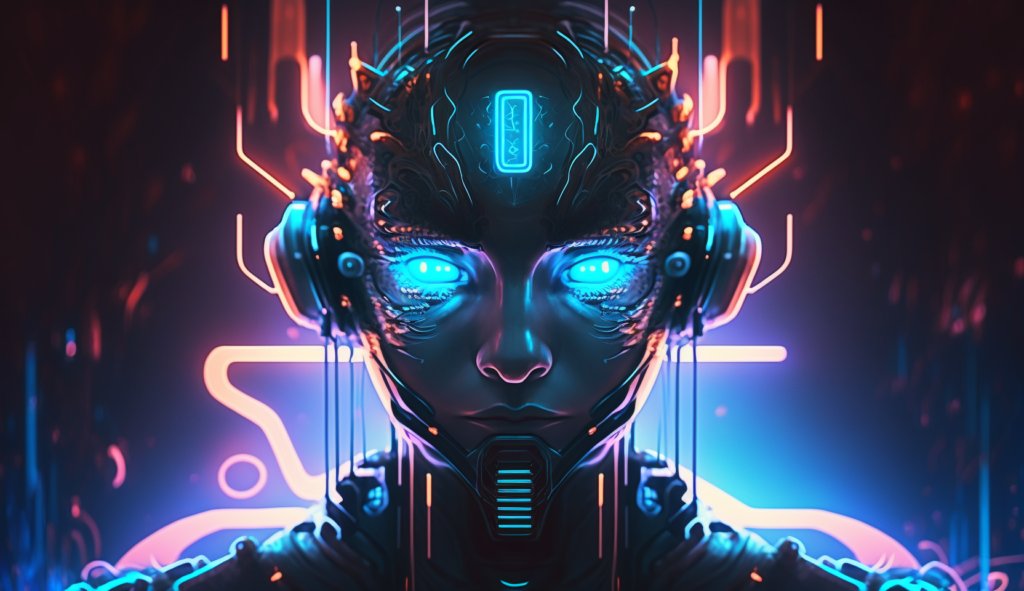
Role Of Education And Training
As healthcare technology advances, the role of education and training for nurses is becoming increasingly important. With AI technology rapidly changing the way medical care is being delivered, nurses must stay up-to-date with certification requirements and keep their skills current in order to remain competitive in a rapidly evolving field. Nursing education can provide an invaluable foundation for understanding how best to utilize technological advancements within healthcare settings.
Healthcare training programs are essential for preparing nurses to use AI technologies effectively. Such programs should emphasize both theoretical knowledge as well as practical application of concepts learnt during the course. Nurses need not only understand the theory behind these new developments but be able to put those theories into action through hands-on experience. Through this type of instruction, they can gain valuable insight into integrating AI tools into their practice while also learning which processes work best when utilizing such emerging technologies. Additionally, courses on effective communication between patient and provider become increasingly important given that many AI solutions may require direct contact with patients or physicians prior to implementation.
The world of nursing is quickly shifting from one focused solely on providing traditional services towards incorporating ever-evolving technology skillsets; it’s clear that nursing schools must adapt accordingly if graduates are expected to successfully enter the job market and make meaningful contributions throughout their careers. By equipping students with comprehensive educational experiences across multiple dimensions — technical expertise, interpersonal dynamics, etc.—nursing educators can help ensure that tomorrow’s professionals will have what it takes to compete in today’s digital landscape.

Predictions For The Future
It is estimated that healthcare automation could save the global economy up to $100 billion dollars each year. With this in mind, it begs the question: will nurses be replaced by AI in the future? It’s a complex issue with many factors to consider.
The use of AI in healthcare has already started to become commonplace as hospitals and health systems leverage machine learning algorithms for data analysis and decision-making. This technology can help improve outcomes by providing more precise diagnoses, reduce costs through increased efficiencies, and enhance communication between patients and their care teams. However, there are some who worry about potential job loss if nursing roles were replaced with automated solutions.
On one hand, automating certain aspects of patient care may lead to improved quality of care while also reducing labor costs. On the other hand, machines cannot provide the same level of empathy or emotional connection that humans do when caring for patients – something that is essential for healing and recovery. Moreover, relying too heavily on AI can open up opportunities for errors due to faulty programming or incorrect assumptions based on incomplete data sets.
In light of these considerations, it appears likely that AI will continue to play an increasingly important role in healthcare but its impact on replacing human nurses remains uncertain. While automation may offer benefits such as faster processing times and cost savings, ultimately only time will tell what effect it might have on nursing roles going forward.
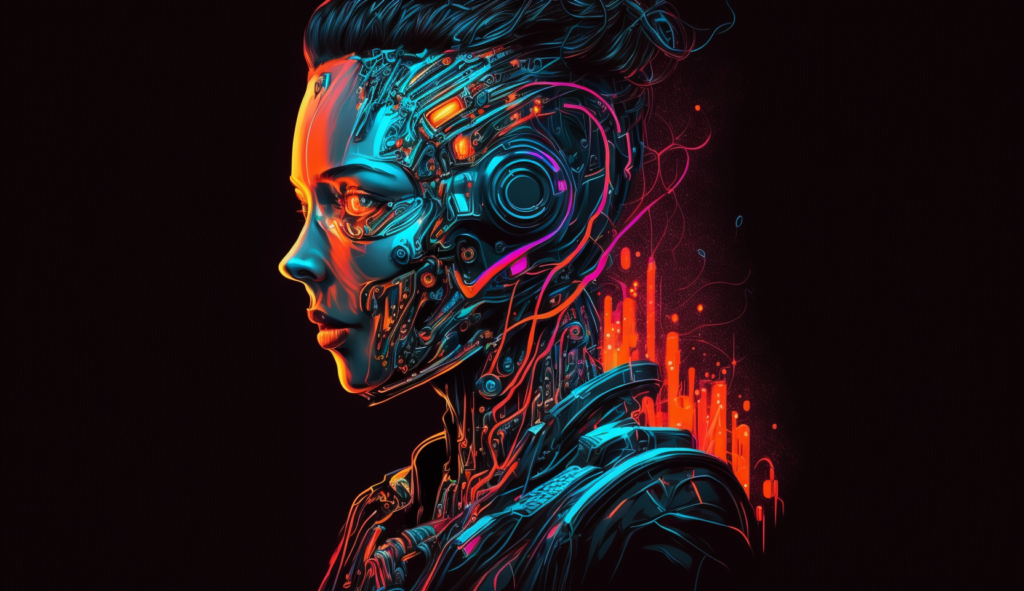
Benefits To Society
The future of healthcare is looking brighter with the potential for Artificial Intelligence (AI) to revolutionize the industry. AI technology has a great capacity to increase healthcare efficiency, reduce costs and improve diagnosis accuracy. With AI-driven systems in place for streamlining processes, errors are likely to be reduced significantly.
These advancements can bring about immense benefits to society as people will have access to quality care at more affordable prices. Additionally, medical professionals could focus their attention on treatments and operations instead of having to deal with tedious paperwork or lengthy administrative tasks. This means they would have time available to provide better patient care while also reducing burnout among staff members. In addition, AI can offer valuable insights into disease prevention and detection methods that may not be easily identified by human analysis alone.
In short, AI has the potential to transform healthcare and create a healthier world where everyone has access to reliable treatment options without compromising their financial well-being. Not only does this benefit individuals but it also helps create a stronger foundation for future generations who can expect improved standards in healthcare delivery from those before them.

Final Thoughts
The future of healthcare automation is a journey that has only begun. We have seen AI implications with the potential to revolutionize patient outcomes, yet there are still many challenges ahead. Healthcare professionals remain an essential part of providing quality care and they will not be replaced by machines any time soon. The use of AI in healthcare requires careful consideration and regulation of how it’s used so that job displacement does not occur without proper compensation for those affected. A robust regulatory framework must also ensure AI solutions are safe and secure while addressing privacy concerns as well as ethical considerations related to biases and fairness.
This journey towards a more automated healthcare system may challenge and redefine what work looks like but should ultimately provide better healthcare experiences for patients and providers alike. Moving forward, let’s do so wisely; understanding both the opportunities presented by technology along with its limitations and consequences, ensuring that no one gets left behind on this road to progress.
Author: Ole Paulson
Author Bio: I’m Ole and on this website, I share everything there is to know about Artificial Intelligence, and useful tips for using AI to our advantage. I have a background in data science and research and have been following the AI-space for years. You can read more about me in the “About” page.

